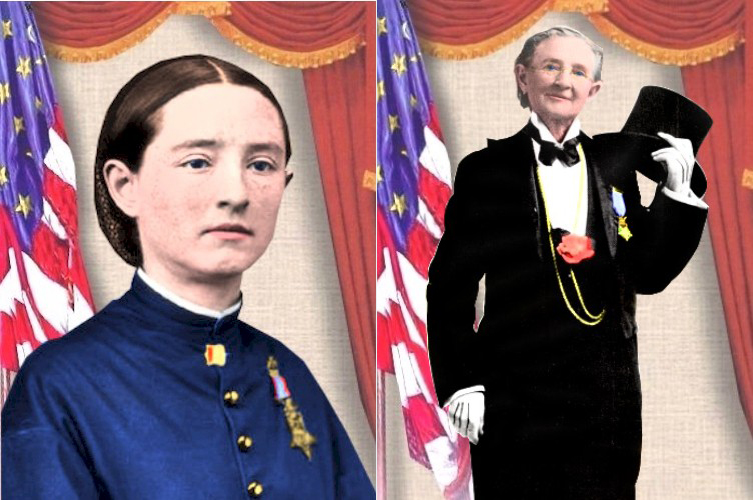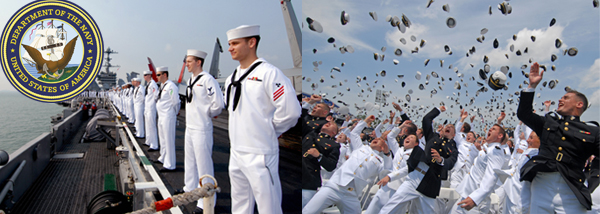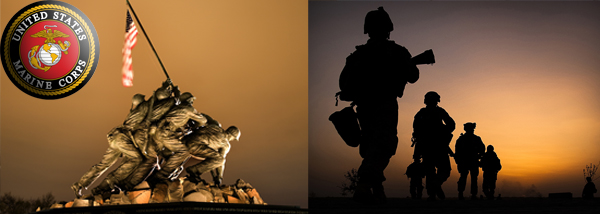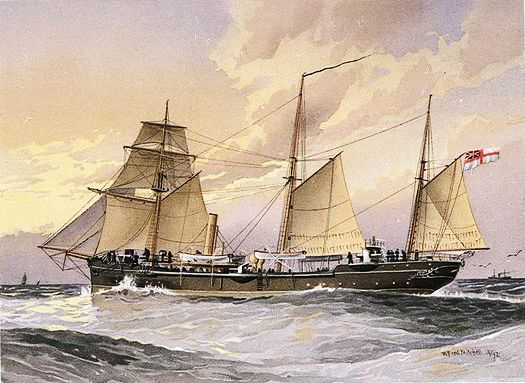
The Seven Years War begins on May 15, 1756.
The Seven Years War, a global conflict known in America as the French and Indian War, officially begins when England declares war on France. However, fighting and skirmishes between England and France had been going on in North America for years.
In the early 1750s, French expansion into the Ohio River valley repeatedly brought France into armed conflict with the British colonies. In 1756--the first official year of fighting in the Seven Years War--the British suffered a series of defeats against the French and their broad network of Native American alliances. However, in 1757, British Prime Minister William Pitt (the older) recognized the potential of imperial expansion that would come out of victory against the French and borrowed heavily to fund an expanded war effort. Pitt financed Prussia's struggle against France and her allies in Europe and reimbursed the colonies for the raising of armies in North America.
By 1760, the French had been expelled from Canada, and by 1763 all of France's allies in Europe had either made a separate peace with Prussia or had been defeated. In addition, Spanish attempts to aid France in the Americas had failed, and France also suffered defeats against British forces in India.
The Seven Years War ended with the signing of the treaties of Hubertusburg and Paris in February 1763. In the Treaty of Paris, France lost all claims to Canada and gave Louisiana to Spain, while Britain received Spanish Florida, Upper Canada, and various French holdings overseas. The treaty ensured the colonial and maritime supremacy of Britain and strengthened the 13 American colonies by removing their European rivals to the north and the south. Fifteen years later, French bitterness over the loss of most of their colonial empire contributed to their intervention in the American Revolution on the side of the Patriots.History Channel
Wikipedia Painting: Seven Years' War: The Death of General Wolfe (1771) by Benjamin West, depicting the Battle of the Plains of Abraham; Battle of Hochkirch; Battle of Minorca of May 20, 1756, shortly after the French landing on Minorca; Siege of Kolberg (1761); Leibgarde battalion at Kolin, 1757; Battle of Zorndorf in August 1758 where Russian and Prussian armies suffered heavy casualties and both claimed a victory.

Understanding Military Terminology - Degaussing
(DOD) The process whereby a ship's magnetic field is reduced by the use of electromagnetic coils, permanent magnets, or other means. Source: JP 3-15
The Old Salt’s Corner - Jack
Jack (nautical): Foul is a nautical term meaning to entangle or entwine, and more generally that something is wrong or difficult. The term dates back to usage with wind-driven sailing ships. It is usually applied to the state of an anchor, which has become hooked on some impediment on the ground, or has its cable wound round the stock or flukes. The term can be applied to many nautical situations:
A jack is a flag corresponding in appearance to the union or canton of the national ensign. In the United States Navy, it is a blue flag containing a star for each state. For countries whose colors have no canton, the jack is simply a small national ensign. On a sailing vessel, the jack is hoisted at the jack-staff shipped at the bowsprit cap when at anchor or in port. A jack staff is a small vertical spar (pole) in the bow of a ship on which a jack is flown. The jack staff was introduced in the 1700’s.

“I’m Just Sayin’”
Three out of Four
The latest survey shows that
three out of four people make
up 75% of the population

“Thought for the Day”
“This is what you shall do: Love the earth and sun and the animals, despise riches, give alms to everyone that asks, stand up for the stupid and crazy, devote your income and labor to others, hate tyrants, argue not concerning God, have patience and indulgence toward the people ... re-examine all you have been told at school or church or in any book, dismiss what insults your very soul, and your very flesh will become a great poem.”
~ Walt Whitman (1819-1892)
“What I Have Learned”
Don’t let a little dispute injure a great friendship.

Bizarre News (we couldn’t make up stuff this good – real news story)
KINGSPORT, Tennessee - Police in Tennessee say a 19-year-old woman smuggled a loaded gun into a jail after a cavity search revealed she had been hiding the weapon in her crotch.
A police report from Kingsport police says Dallas Archer was arrested this week on a charge of driving on a suspended license.
The report says a search at the Kingsport jail Monday turned up a loaded North American Arms 22-caliber mini revolver inside the woman. The reports say a computer check later revealed that the weapon had been stolen.
Archer is charged with possession of stolen property, illegal possession of a firearm and introducing contraband into the jail.
A clerk with the Sullivan County General Sessions Court says no attorney is listed for Archer.Associated Press

Mr. Answer Man Please Tell Us: Has a woman ever been awarded the Medal of Honor?
Yes, Mary Edwards Walker was the only one to earn the Congressional Medal of Honor, for her service during the Civil War.
Controversy surrounded Mary Edwards Walker throughout her life. She was born on November 26, 1832 into an abolitionist family. Her father, a country doctor, was a free thinking participant in many of the reform movements that thrived in upstate New York in the mid 1800s. He believed strongly in education and equality for his five daughters. He also believed they were hampered by the tight-fitting women's clothing of the day.
In June 1855 Mary, the only woman in her class, joined the tiny number of women doctors in the nation when she graduated from the eclectic Syracuse Medical College, the nation's first medical school and one which accepted women and men on an equal basis.
In 1856 she married another physician, Albert Miller, wearing trousers and a man's coat and kept her own name. but the public was not ready to accept a woman physician, and their practice floundered. They were divorced 13 years later.
When the Civil War broke out, she came to Washington and tried to join the Union Army. Denied a commission as a medical officer, she volunteered anyway, serving as an acting assistant surgeon - the first female surgeon in the U.S. Army.
As an unpaid volunteer, she worked in the U.S. Patent Office Hospital in Washington. Later, she worked as a field surgeon near the Union front lines for almost two years (including Fredericksburg and in Chattanooga after the Battle of Chickamauga).
In September 1863, Walker was finally appointed assistant surgeon in the Army of the Cumberland for which she made herself a slightly modified officer's uniform to wear, in response to the demands of traveling with the soldiers and working in field hospitals. She continually crossed Confederate lines to treat civilians.
She was taken prisoner in 1864 by Confederate troops and imprisoned in Richmond for four months until she was exchanged, with two dozen other Union doctors, for 17 Confederate surgeons. She was paid $766.16 for her wartime service. Afterward, she got a monthly pension of $8.50, later raised to $20, but still less than some widows' pensions.
On November 11, 1865, President Johnson signed a bill to present Dr. Mary Edwards Walker with the Congressional Medal of Honor for Meritorious Service, in order to recognize her contributions to the war effort without awarding her an army commission. She was the only woman ever to receive the Medal of Honor, her country's highest military award.
In 1917 her Congressional Medal, along with the medals of 910 others was taken away when Congress revised the Medal of Honor standards to include only “actual combat with an enemy” She refused to give back her Medal of Honor, wearing it every day until her death in 1919.
Wikipedia Image: Mary Edwards Walker Civilian Contract Surgeon, U.S. Army, Medal Of Honor, Civil War

Where Did That Saying Come From?
“Saved by the bell:” As scary as it sounds, being buried alive was once a common occurrence. People who feared succumbing to such a fate were buried in special coffins that connected to a bell above ground. At night, guards listened for any bells in case they had to dig up a living person and save them “by the bell”.
Wikipedia Image: The recovery of supposedly dead victims of cholera, as depicted in The Premature Burial by Antoine Wiertz, fuelled the demand for safety coffins.

NAVSPEAK aka U.S. Navy Slang
Big Eyes: Large mounted binoculars normally found on or near the Signal Shack.
Dicksmith: Yet another derogatory term for hospital corpsmen.
Flattop: Aircraft carrier. Also the haircut worn by truly motivated sailors.
Haze Gray and Underway: Surface ships in arduous duty at sea, in contrast to aircraft carriers or submarines, or naval units in ceremonial roles or in port. It is a term of tribal pride and identification, e.g. surface ship crew use it to distinguish themselves from submarine crew or aircraft carrier crew.

Just for MARINES
Brown Side Out: (Vietnam Era) Helmet covers and shelter halves were green camo on one side and brown camo on the other. This was the instruction to place the brown camo on the outside. It was most often used to describe confusion in orders as the color would change frequently and ultimately someone would show up for formation in the wrong color.
Brown Water Navy: Operations in rivers and other shallow water locations. See Shallow Water Sailor.
Brownbagger: A person who carried lunch rather than eat at the mess hall (usually a Married Marine). Also a bar just outside the main gate to Camp Lejeune, NC.

Navy Acronyms
OASD - Office of the Assistant Secretary of Defense
OMB - Office of Management and Budget
OPN - Other Procurement, Navy
OPR - Office of Primary Responsibility

Naval Aviation Squadron Nicknames
VFA-31 Strike Fighter Squadron 31: “Tomcatters” NAS Oceana, Virginia

The Strange, Mysterious or Downright Weird

The Anglo-Zanzibar War was fought between the United Kingdom and the Zanzibar Sultanate on August, 27 1896.
The origin of the war is pretty boring - some drama involving Zanzibar (then a territory of the British Empire) wanting to elect one Sultan as their leader, and the British wanting another. What IS startling is that 500 casualties were sustained in that short time before Zanzibar surrendered.
History of Zanzibar (Wikipedia)
OH WHAT A YEAR - 1995

1. Gangsta's Paradise - Coolio
2. Waterfalls - TLC
3. Creep - TLC
4. Kiss From A Rose - Seal
5. Play a Simple Melody - Boyz II Men

● World Series Champions: Atlanta Braves
● Superbowl XXIX Champions: San Francisco 49ers
● NBA Champions: Houston Rockets
● Stanley Cup Champs: New Jersey Devils
● U.S. Open Golf: Corey Pavin
● U.S. Open Tennis (Men/Ladies): Pete Sampras / Steffi Graf
● Wimbledon (Men/Women): Pete Sampras / Steffi Graf
● NCAA Football Champions: Nebraska
● NCAA Basketball Champions: UCLA wins over Arkansas
● Kentucky Derby: Thunder Gulch
Image: Orange Bowl – The Nebraska Cornhuskers defeat the University of Miami Hurricanes 24-17 on January 1, 1995.

1. E.R. (NBC)
2. Seinfeld (NBC)
3. Friends (NBC)
4. Caroline In The City (NBC)
5. The Single Guy (NBC)
Image: E.R. (NBC)
Most Popular Christmas gifts 1995
● Barbie as Eliza Doolittle in My Fair Lady
● Barbie as Maria in the Sound of Musi
● Barbie and Ken Star Trek gift set

● “No Soup For You!”
~ The Soup Nazi on TV’s Seinfeld. The location was based on a real place and character, found at Al Yeganeh’s Soup Kitchen in New York.
● “If it doesn’t fit, you must acquit!”
~ Defense Attorney Johnnie Cochran at O.J. Simpsons murder trial
● “Look, half the time when I see the evening news, I wouldn't be for me, either.”
~ Bill Clinton, in 1995, on a pre-campaign swing through Montana and Colorado
Image: The Soup Nazi on TV’s Seinfeld (NBC)

Trivia
● Jonas Salk declined to patent his polio vaccine. “There is no patent”, he said. “Could you patent the sun?”
● Only one McDonald’s in the world has turquoise arches. Sedona, AZ thought yellow clashed with the natural red rock.
● 12+1 = 11+2, and “twelve plus one” is an anagram of “eleven plus two”.
A Test for People Who Know Everything
During World War II metal was scarce. What were the Oscars made of during the war?
● Answer for People Who Do Not Know Everything, or Want to Verify Their AnswerOscars.org
Answer to Last Week's Test
What were the names of the two zany crash-test dummies who urged the U.S. car-riding public to buckle up in an ad campaign that ran from 1985 to 1998?
Answer: Vince and Larry. Their costumes, which were worn by the actors who portrayed them, are now in the Smithsonian Museum of American History. The slapstick “you can learn a lot from a dummy” public safety announcements were sponsored by the National Highway Traffic Safety Administration.Wikipedia
Joke of the Day
U.S. Army Rules:
1. Curse bitterly when receiving operational order.
2. Make sure there is extra ammo and extra coffee.
3. Curse bitterly.
4. Curse bitterly.
5. Do not listen to 2nd LTs; it can get you killed.
6. Curse bitterly.
U.S. Air Force Rules Rules:
1. Have a cocktail.
2. Adjust temperature on air-conditioner.
3. See what's on HBO.
4. Ask “What is a gunfight?”
5. Request more funding from Congress with a “killer” Powerpoint presentation.
6. Wine & dine “key” Congressmen, invite DOD & defense industry executives.
7. Receive funding, set up new command and assemble assets.
8. Declare the assets “strategic” and never deploy them operationally.
9. Hurry to make that 13:45 tee-time.
10. Make sure the base is as far as possible from the conflict but close enough to have tax exemption.
U.S. Navy Rules:
1. Go to sea.
2. Drink coffee.
3. Deploy Marines.
U.S. Marine Corps Rules:
1. Be courteous to everyone, friendly to no one.
2. Decide to be aggressive enough, quickly enough.
3. Have a plan.
4. Have a back-up plan, because the first one probably won't work.
5. Be polite. Be professional. But have a plan to kill everyone you meet.
6. Do not attend a gunfight with a handgun whose caliber does not start with a “4”.
7. Anything worth shooting is worth shooting twice. Ammo is cheap. Life is expensive.
8. Move away from your attacker. Distance is your friend. (Lateral & diagonal preferred.)
9. Use cover or concealment as much as possible.
10. Flank your adversary when possible. Protect yours.
11. Always cheat; always win. The only unfair fight is the one you lose.
12. In ten years nobody will remember the details of caliber, stance, or tactics. They will only remember who lived.
13. If you are not shooting, you should be communicating your intention to shoot.



















